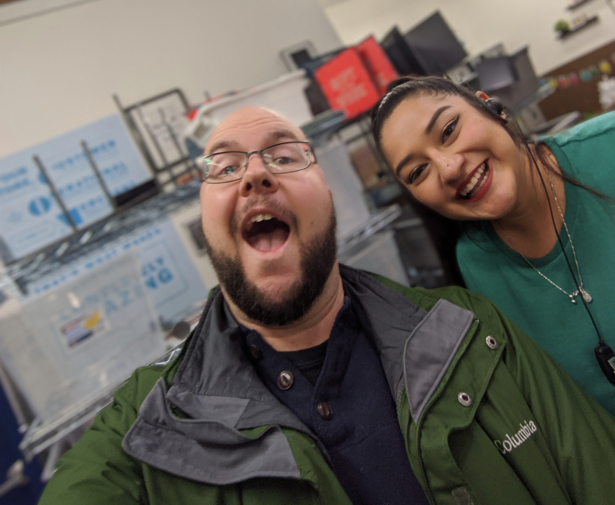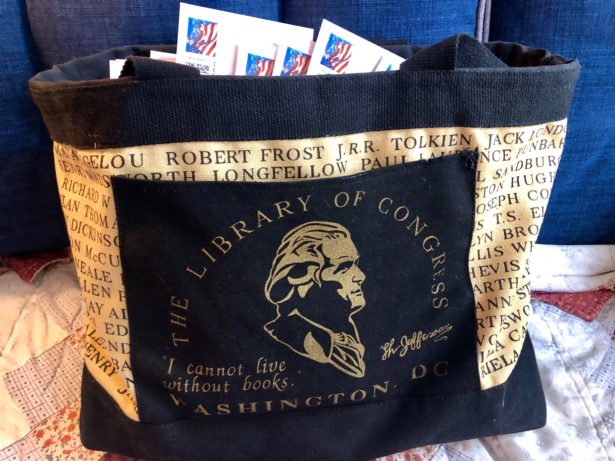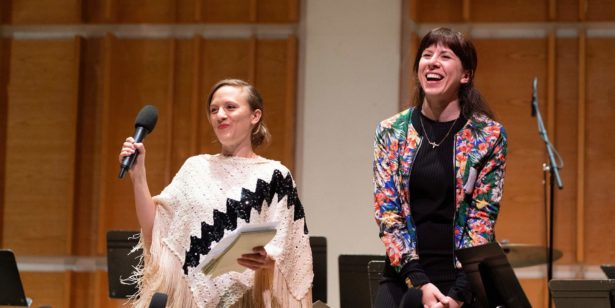
Learning To Walk Again—And Then Volunteer
How a fractured ankle slowed one woman on the path to a good turn
Once Megan Galbraith’s kids were grown and out of the house, she turned her attention toward a reexamination of the things that brought her joy. “To be perfectly, honest, in kind of soul-searching about what I really like to do, I actually had to think back to when I didn’t have a family,” she said. “So after having raised my kids and after going back to school and after, frankly, being divorced and having been a wife and a mother and trying to figure out what does bring me joy, I realized: I love volunteering.”
So Galbraith set her sights on renewing her commitment to volunteerism, including again getting involved with the Special Olympics, an organization she had worked with in the late 1980s and early 1990s, before she started her family. But when she was moving house this past summer, an accident forced her to put that renewed commitment on hold.
“It was literally moving day. We were at my house, it was me and these three movers, and I was coming down the stairs and talking at the same time. I guess I didn’t realize at the time just how emotionally and physically exhausted I really was,” she told Good Turns recently. “I was coming down the stairs and I had a pair of Danskos on and I missed the last step—and I heard my leg, it just snapped like a table leg.”
Galbraith had fractured her ankle—a polite description for having snapped her ankle in half. “My foot was perpendicular to the floor, and the tibia was sticking out. It didn’t break the skin, but it was definitely not supposed to be like that,” she said. “Then I just began telling everyone else what to do. I was like, ‘You call the ambulance. You get me ice. You get away from me.’ That’s sort of my superpower, when I’m in shock and I go into this PTSD thing where I’m extremely calm in the face of crisis.”
“When something like this happens, it makes you realize who shows up for you”
The move went on without her, while Galbraith’s doctors managed to repair her ankle with the help of screws and plates and wires. While the ankle heals she is getting around with the help of a walker (which she has dubbed Walker, Texas Ranger), so rather than volunteering to help others, she now finds herself on the receiving end of a great many helping hands.
“When something like this happens, it makes you realize who shows up for you,” Galbraith says. “Aside from my close family, my friends have showed up for me in enormous ways, and I am so grateful that I’m surrounded by people who will do this type of thing. People have come to stay with me and clean my house and move my apartment around, because I was sitting in here with just boxes and a mattress on the floor, in incredible pain. My boss [at Bennington College, where Galbraith helps run the MFA writing program], who is the kindest person in the world, came early to see me and literally offered to lift me on and off the toilet. Who has a boss like that?”
Her broken ankle isn’t the first time Galbraith has had to put off a good turn that was meaningful to her, she reports. Some years ago, her cousin died of leukemia at age 18, and Galbraith, who is adopted, was unable to donate bone marrow because she wasn’t a blood relation. So she enrolled in the National Marrow Donor Program, which supports research into bone marrow transplantation and maintains a registry of donors who are willing to contribute their bone marrow to those in need. “I’ve come close to being a match twice, but never been a full match, sadly,” Galbraith says.
Besides putting a damper on her renewed commitment to volunteerism, Galbraith’s injury has also given her new perspective on her busy life. “It was definitely the universe telling me to slow down, when a piece of your body literally snaps,” she said. “I will never ever take my mobility for granted again. It has definitely given me a window into seeing the world through disabled eyes, even though I am temporarily disabled. It makes me realize how the world really is for people who have mobility issues. The world is just not wired for getting around easily.”
The Special Olympics’ winter games will be held in February, by which time Galbraith hopes to be fully recovered. She’s still not sure what role she will play there. “They have a number of volunteer duties: you can help with setup and takedown, you can help with concessions, you can do events administration, you can be a social media ambassador, you can do what they call a Fan in the Stands, just being a cheering section for the athletes. And on the field you can be a hugger. That’s what I did [thirty years ago]. For track and field, for instance, once the kids cross the finish line, you’re just standing in their lane and giving them a huge hug and celebrating with them. Let me tell you, if there’s something that will make you bawl your eyes out, it’s the exuberance of somebody who crosses the finish line. It just makes me tear up right now because it’s such a great thing, they’re so happy.” And we’re happy too, to know that people like Galbraith are at work on their behalf—or will be, as soon as she heals.
Posted August 16, 2019





